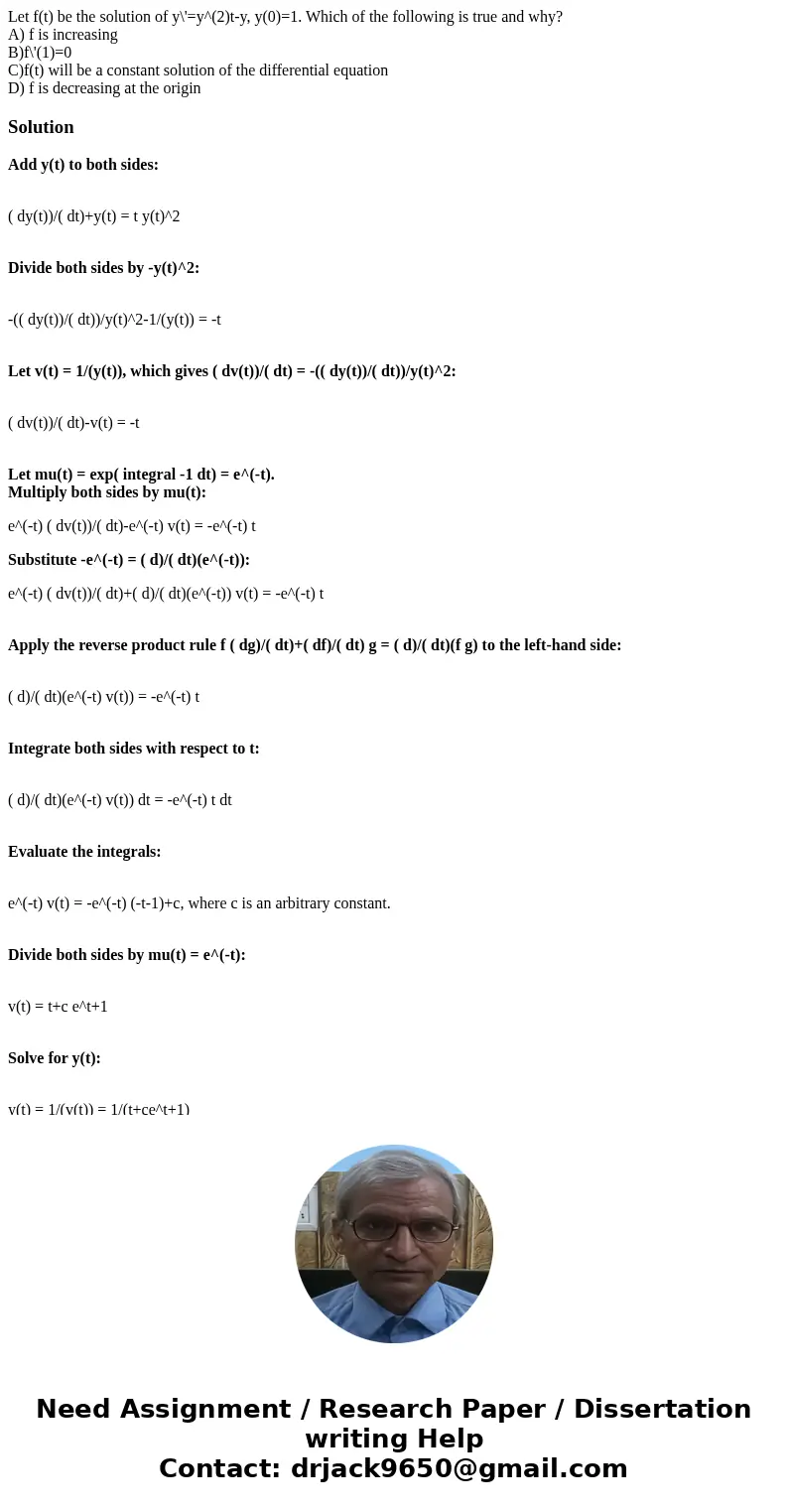Let ft be the solution of yy2ty y01 Which of the following i
A) f is increasing
B)f\'(1)=0
C)f(t) will be a constant solution of the differential equation
D) f is decreasing at the origin
Solution
Add y(t) to both sides:
( dy(t))/( dt)+y(t) = t y(t)^2
Divide both sides by -y(t)^2:
-(( dy(t))/( dt))/y(t)^2-1/(y(t)) = -t
Let v(t) = 1/(y(t)), which gives ( dv(t))/( dt) = -(( dy(t))/( dt))/y(t)^2:
( dv(t))/( dt)-v(t) = -t
Let mu(t) = exp( integral -1 dt) = e^(-t).
Multiply both sides by mu(t):
e^(-t) ( dv(t))/( dt)-e^(-t) v(t) = -e^(-t) t
Substitute -e^(-t) = ( d)/( dt)(e^(-t)):
e^(-t) ( dv(t))/( dt)+( d)/( dt)(e^(-t)) v(t) = -e^(-t) t
Apply the reverse product rule f ( dg)/( dt)+( df)/( dt) g = ( d)/( dt)(f g) to the left-hand side:
( d)/( dt)(e^(-t) v(t)) = -e^(-t) t
Integrate both sides with respect to t:
( d)/( dt)(e^(-t) v(t)) dt = -e^(-t) t dt
Evaluate the integrals:
e^(-t) v(t) = -e^(-t) (-t-1)+c, where c is an arbitrary constant.
Divide both sides by mu(t) = e^(-t):
v(t) = t+c e^t+1
Solve for y(t):
y(t) = 1/(v(t)) = 1/(t+ce^t+1)
For this function if we find derivative, only option D is correct

 Homework Sourse
Homework Sourse